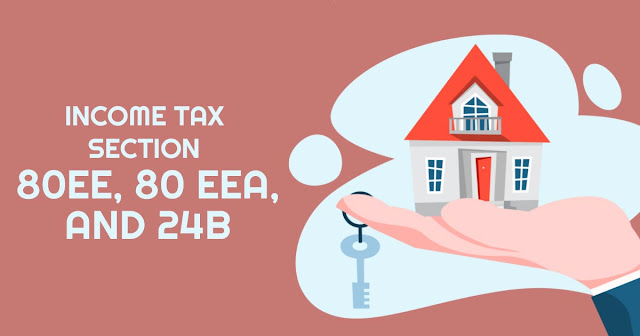Conversation Between Sunil and Tina
Tina: Sunil, can we buy a new house for ourselves?
Sunil: Yes, however this year I need to invest to claim the tax advantages so we could think the same in the subsequent year.
Tina: It seems that you do not know the tax advantages from the loans opted for the house property.
Sunil: Is it?
Tina: Yes
Sunil: Just tell me what would be the tax advantages of the housing loan?
Tina: Let me provide you with an overview then we would go towards each provision after that.
Sunil: I am listening
Tina: House loan repayment comprises two portions 1. Principle and 2. Interest repayments
- Principal repayments get deduction u/s 80C up to 1,50,000
- Interest repayments get deduction u/s
- 24(b) up to 2,00,000 in case of self occupied
- 80EE Maximum – 50,000
- 80EEA Maximum – 1,50,000
Sunil: This is unimaginable we could save from a housing loan then what is the requirement to invest in the others.
Tina: Do not enjoy obtaining these deductions we require to satisfy some of the conditions, let's see these.
Sunil: let's begin
Tina: Under section 80C, a taxpayer would claim the principal payment as the deduction and stamp duty, the enrollment fee, and the additional expenses concerned with the buying of the new house.
Tax Deduction for Interest Payments Available U/S 80EEA, 80EE, and 24B:
Income Tax Section 80EE:
Conditions:
- The loan must be carried in the p.y 2016-17.
- Value of house ≤ 50,00,000.
- Loan ≤ 35,00,000.
- The taxpayer would not pose any additional house property.
- The loan must be from a financial institution.
- Maximum deduction – 50,000.
Income Tax Section 80 EEA
Conditions:
- The loan must be taken between the years 2019-2022. 2. Stamp duty value ≤ 45,00,000.
- Stamp duty value ≤ 45,00,000.
- No limit would be there on the loan.
- Maximum deduction 1,50,000.
- The loan must belong to the financial institution.
Income Tax Section 24B
Conditions:
- No limitation would be there on the loan value and the value of the property.
- The loan would belong from any source (e.g: the loans via relatives, friends etc)
- The classification of loan can be of any form personal loan, business loan etc but used for the construction or buying of house property.
- There would be no condition on the existing house property
- However, the max deduction permitted for the self-occupied property would be Rs 2,00,000 along with all the properties.
Tina: Now you get it?
Sunil: Yes, though I have some questions?
Tina: Ok, fire me?
Sunil: This is concerned with the 24(b) section. If I avail of a loan as joint property is a deduction of 2,00,000 for both?
TIna: NO, each co-owner would obtain 2,00,000 deductions.
Sunil: Loan through the relatives would be permitted in 24(b) could we obtain the cash loan?
Tina: Yes, but up to 20,000 as some additional sections pose the penalties on cash loans of more than 20,000.
Sunil: if house property is used for let out purpose in this case also we will get a maximum of 2,00,000 as a deduction?
Tina: No, there is no limit towards the case of let out as per the conditions like construction needs to be finished prior to 5 years.
Sunil: Under sections 80EE & 80EEA the deduction time limits we already lose, thus if we initiate it now we could take only deduction u/s. 80C & 24(b) is it right?
Tina: Yes, You are right.
Sunil: Thank you, Tina.


Comments
Post a Comment